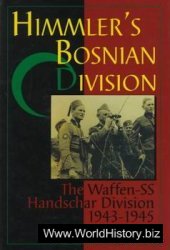The nineteenth century (including the first decades of the twentieth century) represents the ‘‘great time’’ of German classical studies, which had been developed on strict historical foundations with meticulous research into philological, historical, and archaeological details since August Boeckh (1785-1867). Well-known scholars of this time included the ancient historian Theodor Mommsen (1817-1903), the philologists Friedrich Ritschl (1806-76), Friedrich Leo (1851-1914), and Ulrich von Wilamowitz-Moellendorff (1848-1931), the historians of philosophy Eduard Zeller (1814-96) and Hermann Diels (1848-1922), and the archaeologists Ernst Curtius (1814-96), Heinrich Schliemann (1822-90), Wilhelm Dorpfeld (18531940), and Adolf Furtwangler (1853-1907). It was during this period that academic projects on a grand scale, such as the ‘‘Bibliotheca Teubneriana’’ series of classical texts, the compendia Realencyclopddie der classischen Altertumswissenschaft (Factual encyclopedia of the study of classical antiquity) and Handbuch der classischen Altertumswissenschaft (Manual of the study of classical antiquity), the dictionary Thesaurus linguae Latinae (Treasure of the Latin language), and the collections of inscriptions Inscrip-tiones Graecae (Greek inscriptions) and Corpus inscriptionum Latinarum (Collection of Latin inscriptions), were initiated. Excavations commenced in Troy, Olympia, Aegina, and Pergamon. Scientific academies, universities with their departments of classical studies, museums (especially in Berlin and Munich), and collections of antiquities and casts became important centers of academic life.
In contrast to fundamental research with a positivistic bend, the Swiss scholars Johann Jacob Bachofen (1815-87) and Jacob Burckhardt (1818-97) aimed at a new appreciation of classical culture as a whole, which included turning away from an idealizing view of the Greeks. New theoretical approaches were also developed in philosophy: in the sociocritical reading of antiquity by Karl Marx (1818-83) and Friedrich Engels (1820-95) as well as in Friedrich Nietzsche’s (1844-1900) ecstatic ‘‘Dionysian’’ view of antiquity, which was markedly different from the harmonic ‘‘Apollonian’’ understanding of the classical period.
These scholars threw light on the ‘‘dark side’’ of antiquity. The detailed research in the field of classical studies also mostly avoided the preceding period’s tendency to emphasize the heroic. Yet traditional views still prevailed in popular writings and in the educational system, which mostly continued Humboldt’s approach, though with somewhat less breadth. Although the position of the ‘‘Humaniora’’ remained secure, changes in literature that had been developing since 1800 gained currency, and a ‘‘realistic’’ rendering of a bourgeois environment became dominant. The reception of classical antiquity lost much of its importance during the course of the nineteenth century - not so much quantitatively as in its perceived role as offering a dominant worldview and/or as in its artistic standards. On the one hand, we see a flattening, trivialization, and derivative imitation of the classics - Gustav Schwab (1792-1850), for instance, explicitly recounted the ''schonsten Sagen des klassischen Altertums’’ (''most beautiful myths of classical antiquity’’); on the other, the tendency to use antiquity for nationalistic purposes grew steadily (clearly from 1866, the year of Prussia’s victory over Austria), as in the novel Ein Kampf um Rom (A battle for Rome) by Felix Dahn (1834-1912).
Significant works with classical motifs were, however, still being produced. Heinrich Heine (1797-1856) definitely recognized antiquity as part of the past and often satirized it, but he also saw it, in the end, as the goal of his elegiac longing. Christian Dietrich Grabbe (1801-36) portrayed historical processes in a number of plays on Roman subject matters without any illusions. Democratic convictions and a sharp anticlerical stance were met by a strong inclination toward the formal and classical in August Graf von Platen-Hallermunde (1796-1835). Because he felt that his inner nature resonated in sympathy with that of Anacreon, Theocritus, Catullus, Horace, and Tibullus, Eduard Morike (1804-75) liked to render personal subjects in quasiclassical tones. Friedrich Hebbel (1813-63) wrote Gyges und sein Ring (Gyges and his ring), using Herodotus and Plato, a tragedy exploring issues of power, tradition, and achievement. In his Ring des Nibelungen, Richard Wagner (1813-83) consciously combined a story from Germanic myth with the world of the gods of the Iliad and the structure of Aeschylus’ Prometheus plays.
The work of Wagner is significant for the history of literature, as well as of music and of the theater. While German music of the mid-nineteenth century for the most part was not concerned with antiquity, the first production of an original classical play (in translation) took place in 1841 with Sophocles’ Antigone, directed in Potsdam by Ludwig Tieck (1773-1853). This new trend toward a classical revival in the theater was continued by other productions directed by Tieck in Potsdam as well as by performances in Munich, Meiningen, and Vienna.
Classical subject matters also played a role in painting without being dominant. Anselm Feuerbach (1829-80) strove to renew Greek beauty by means of a grand style and decorative composition (Medea, Amazonenschlacht [Battle of the Amazons], Iphigenie, Gastmahl des Platon [Plato’s feast]). The Swiss painter Arnold Bocklin (1827-1901) tried to revive fundamental moods and concepts of antiquity ( Triton und Nereide, Im Spiel der Wellen [In the play of the waves]). The genre of historical painting was cultivated by Karl Theodor von Piloty (1826-86) (Die Ermordung Casars [Caesar’s murder], Tod Alexander des Grofen [Death of Alexander the Great]). Hans Makart (1840-84) created a Triumph der Ariadne (Triumph of Ariadne) and a Tod der Kleopatra (Death of Cleopatra). Max Klingner (1857-1920) employed classical ideas and forms in a unique, creative manner (Amor und Psyche, Urteil des Paris [Paris’ judgment], Kassandra).




 World History
World History









